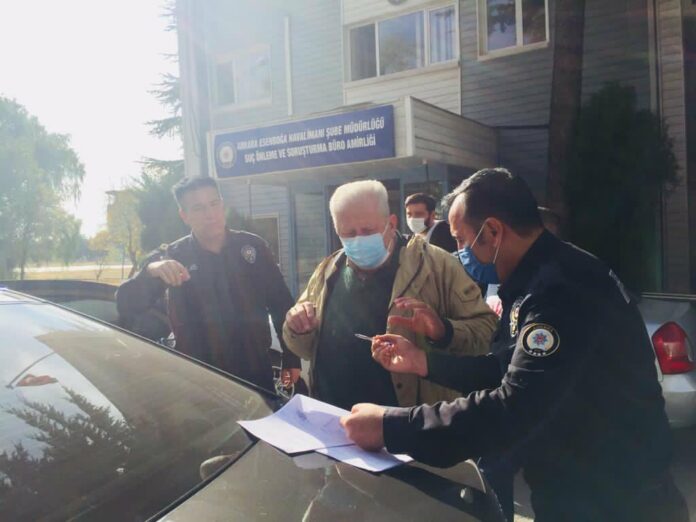Former minister of health Rıfat Serdaroğlu was detained at Ankara Esenboğa Airport on Thursday and taken to the public prosecutor’s office for questioning for allegedly insulting Turkish President Recep Tayyip Erdoğan, the ANKA news agency reported.
Serdaroğlu, who is chairman of the Righteous Party (Doğru Parti), was accused of insulting the president due to a column he wrote for a local paper in 2018 titled “Father, son and the holy son-in-law.” He was released after he was questioned by the public prosecutor.
Speaking to reporters outside the court building, Serdaroğlu said, as someone who served his country he should have been invited to the public prosecutor’s office instead of being detained. “Turkey no longer upholds the principle of the rule of law. … Under a Righteous Party government, honest and patriotic people will serve, and all of these thieves will be sentenced to the punishment they deserve,” he added.
Serdaroğlu said he told the public prosecutor that his column was critical but he did not mean to insult anyone.
According to a report by the Birgün daily the number of people investigated for insulting President Erdoğan is increasing every year, with 36,066 people facing criminal investigations in 2019.
Since Erdoğan assumed the presidential office in 2014, thousands of people have received prison sentences for insulting him — 2,046 in 2018 and 3,831 in 2019. Article 299 of the Turkish Penal Code (TCK) states that any person who insults the president of the republic faces a prison term of up to four years. This sentence can be increased by a sixth if it has national exposure, and by a third if committed by the press or media. In total 9,554 people have received sentences for insulting the president.
According to human rights lawyer Kerem Altıparmak, more than 100,000 Turkish citizens have been investigated for insulting President Erdoğan and in excess of 30,000 court cases were opened. Altıparmak says Article 299 of the TCK on insulting the president runs against the provisions of the European Convention on Human Rights, to which Turkey is a party, and should be annulled. The offense of insulting the head of state has been decriminalized in several European countries, and although it is still part of the penal code of Germany, the Netherlands, Belgium and Portugal, there have been no recent convictions.
In a 2016 opinion, the Venice Commission had noted with concern the large number of investigations, prosecutions or convictions reported by the press, for insulting the president. It had recalled that the European Commission in its 2015 report on Turkey underlined that “there is a widened practice of court cases for alleged insult against the President being launched against journalists, writers, social media users and other members of the public, which may end in prison sentences, suspended sentences or punitive fines.” According to the same report, this intimidating climate has led to increased self-censorship.
According to the Venice Commission, the use of offensive, shocking or disturbing words especially within the context of a debate on matters of public interest are guaranteed by freedom of expression. Expressions that may be perceived in the abstract as denigrating, such as “thief” (in relation to a corruption probe) or “murderer” (in relation to demonstrators who lost their lives during the Gezi protests), “dictator” and the like must be evaluated in their public debate context.
















[…] Read original article here. […]